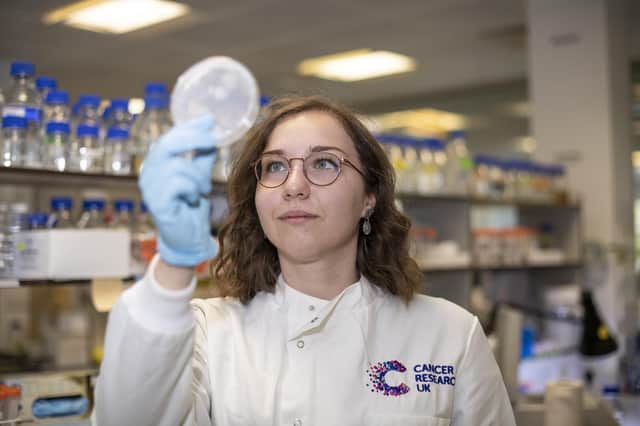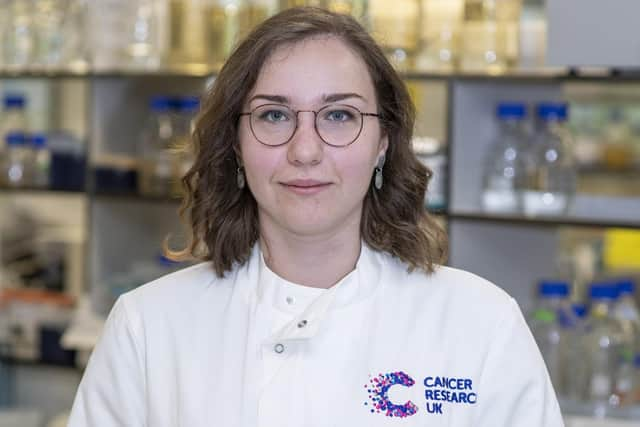Life-saving legacies: How gifts in Wills can help Cancer Research UK fund life-saving research


Cancer Research UK consistently funds world-class cancer research to help more people than ever survive their cancer.
This is thanks in part, to our incredible supporters, including those leaving gifts in Wills. In the 1970s, just 1 in 4 people in the UK survived cancer for 10 years or more. Today, that figure has doubled. We’ve come so far, but we still need to go further and faster.
Your help is needed


In Yorkshire, around 32,500 people are diagnosed with cancer every year*, and sadly, approximately 14,400 people die from cancer every year**. We urgently need to advance research to improve survival for people with cancer. To achieve this, we need your support.
Our pioneering work across the UK, including in Yorkshire, benefits from the generosity of supporters leaving a gift to Cancer Research UK in their Will. In fact, legacy gifts fund a third of our research. These legacies are vital because they enable us to commit to long-term research projects to improve our understanding of cancer biology and develop new ways to prevent, diagnose and treat cancer. They allow us to achieve breakthroughs at the cutting-edge of today's knowledge and technological capabilities and continue to save lives for generations to come.
By equipping our researchers with tools to support their development and progression, we’re investing in the scientific leaders of tomorrow who will help create a world where people live longer, better lives, free from the fear of cancer. To achieve this aim, as a charity we want a wide range of skills and diversity, and while women and men are roughly equal proportions of our research community at earlier career stages, we know that women may face more barriers in their futures.
Pioneering research
One researcher in our community is Alexandra Hendry, who is based at our Manchester Institute. She is working in vital research looking at both healthy cells and cancer cells, exploring they different ways they divide and grow, to help understand this process.
In healthy cells, the process of cell division is very tightly controlled – cells have a network of signals that tell them when to grow, and when to stop growing, but this system is ‘rewired’ when cancer cells develop, overriding our body’s controls and signals.
Alexandra is studying the signalling pathway, to find out how the processes change, identify cancer’s weaknesses and from there help develop more effective treatments.
Why gifts in Wills are vital
Alexandra says: "Without gifts in Wills I wouldn't be able to do the work I do".
Thanks in part to gifts in Wills, we’re able to fund researchers like Alexandra. By pledging to support Cancer Research UK, you enable us to invest in transformational research and harness the knowledge we need to make a difference for people affected by cancer.
Our researchers, including Alexandra, are revolutionising what we know about cancer and how we can beat it. Join us to help bring about a world where people live longer, better lives, free from the fear of cancer.
To get your free gifts in Wills guide, visit cruk.org/pledgeyorkshire
* Based on the average annual number of new cases of cancer excl. NSMC (ICD10 C00-C97 excl. C44) diagnosed in Yorkshire and the Humber between 2017 and 2019.
** Based on the average annual number of deaths from cancer (ICD10 C00-C97) in Yorkshire and the Humber between 2017 and 2019